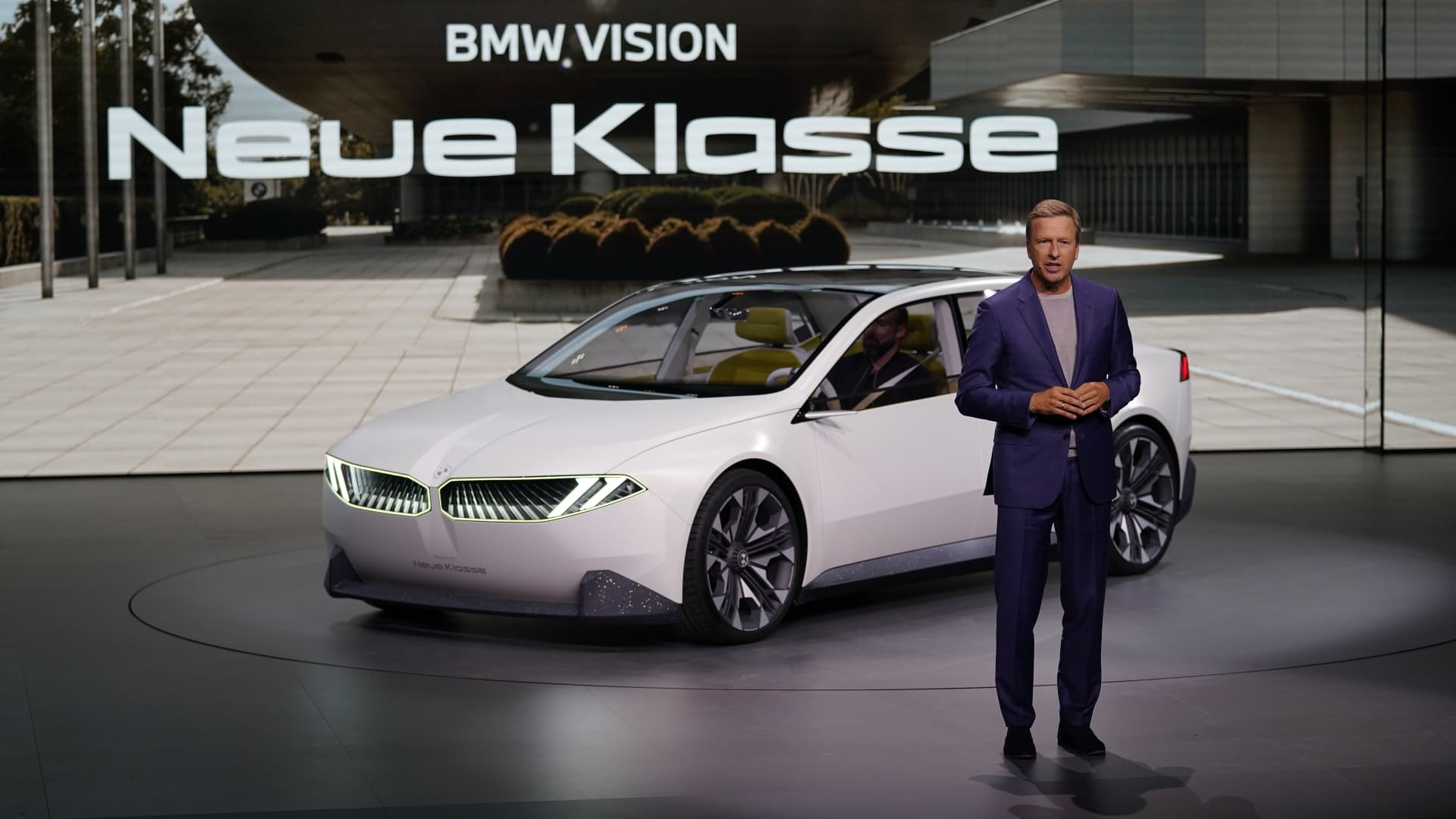BMW CEO Oliver Zipse delivered a speech during the unveiling of the new BMW “New Class” at a pre-IAA motor show event in Munich. As the automotive industry transitions towards electrification, several CEOs of Europe’s largest car manufacturers expressed concerns about the competitive threat posed by emerging Chinese companies. Europe’s dominance in the industry was primarily built on its expertise in combustion engines. However, as the demand for electric vehicles (EVs) rises and Chinese companies benefit from state subsidies, they can produce battery cells at a lower cost. This has removed the traditional entry barrier of combustion engines, allowing Chinese companies to make their mark both domestically and as potential exporters.
Christophe Périllat, CEO of Valeo, a French car parts manufacturer, stated that China has become their main market since the barrier to entry of combustion engines has been eliminated. This poses a significant threat to European automotive giants like Volkswagen, Renault, and BMW, who are striving to expand their fleets of electric and hybrid vehicles without the same level of state subsidies. Renault CEO Luca De Meo expressed that Renault is investing in new technologies, battery plants, and gigafactories through its new pure EV unit, Ampere. He highlighted the need to reduce costs by 40% generation on generation to compete with Chinese OEMs.
Volkswagen CEO Oliver Blume acknowledged the challenge from China and emphasized the company’s focus on developing technologies specifically tailored to Chinese demand. Volkswagen has established various initiatives and partnerships, including the creation of CARIAD and collaborations with Chinese EV startups. Blume mentioned the importance of competition in driving self-improvement and highlighted Volkswagen’s advantages in driving abilities, high-quality standards, design, and heritage. However, he acknowledged the need to accelerate electrification, digitalization, and connectivity and expressed confidence in the company’s decisions.
China has been rapidly building battery plants, with a projected gigafactory capacity pipeline of 4,200 gigawatt hours by 2030. Skoda CEO Klaus Zellmer emphasized that Europe needs to catch up in terms of electricity costs, as it remains a significant cost driver in battery cell production. European policies and incentives are not on par with those in the US or China, leading Zellmer to urge policymakers to move faster.
While mass-market car manufacturers like Renault and Volkswagen are cautious of the Chinese threat, luxury automakers like Porsche are more confident in sustaining their value proposition. Porsche’s Head of R&D, Michael Steiner, highlighted their focus on high-quality components and the development of better cells with higher energy density through their subsidiary Cellforce Group.
Denial of responsibility! VigourTimes is an automatic aggregator of Global media. In each content, the hyperlink to the primary source is specified. All trademarks belong to their rightful owners, and all materials to their authors. For any complaint, please reach us at – [email protected]. We will take necessary action within 24 hours.


